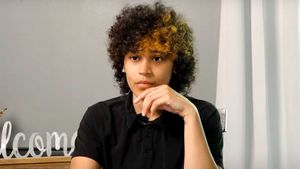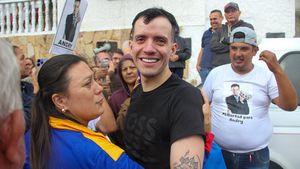In the wake of the devastating passage of Proposition 8 in California, analysts were quick to assign blame, with many commonly citing exit polls that attributed the loss of same-sex marriage to African-American voters. Opposition from racial minorities and other factors, such as the assumption of support from white Democratic voters, have come to inform the Prop. 8 conversation since the discriminatory ballot measure, which repealed same-sex marriage rights, passed in November 2008, but a new report questions the accepted wisdom and suggests other reasons for the outcome, some of them surprising.
“The Prop 8 Report,” released Tuesday by the LGBT Mentoring Project in Los Angeles, analyzes daily polling commissioned by the No on 8 campaign in the final six weeks of the campaign, when a close contest began to turn in favor of antigay forces led by the Yes on 8 campaign. With a focus on TV advertisements, the predominant way the campaigns reached voters, the report concludes that parents with children under 18 living at home played a potentially decisive role in the passage of Prop. 8, constituting more than three quarters of nearly 700,000 voters, most of them white Democrats, who switched sides in the most heated days of the campaign and voted to oppose same-sex marriage. Given that Prop. 8 passed by 52% to 48%, or a margin of nearly 600,000 votes, parents and like-minded voters could have swung the contest at the last minute, the report suggests.
“There was very little movement among African-Americans away from us,” said David Fleischer, the author of the report and founder of the LGBT Mentoring Project. “The movement away from us in the final six weeks was really large-scale, and it turned out that the key group we lost was parents, parents with children under 18 living with home. This is what the opposition was trying to do and what the data confirm is that they worked.”
In essence the report finds that while African-Americans remained stable in their opposition throughout the campaign, Yes on 8 chipped into the gay base and even picked off new gay allies with TV advertisements that played to parents’ fears about how their children would be affected by same-sex marriage. The same strategy would be exported and repeated in Maine the next year, where Question 1 passed last November and repealed the state’s marriage equality law.
The 551-page report, developed over two years, cites TV advertisements such as “Princes,” which premiered in English and Spanish in October 2008 and warned parents that their children would be taught about same-sex marriage in school unless Prop. 8 passed. By comparing the daily polling from No on 8 to the day the ads were released, “The Prop 8 Report” demonstrates the real-time impact of the scare tactics.
“I know the exact day every ad went out the air,” said Fleisher. “It turns out that when you chart voters’ movement, the day when these ads go up, when they have an impact, there’s movement.”























































































 Cindy Ord/Getty Images
Cindy Ord/Getty Images

























